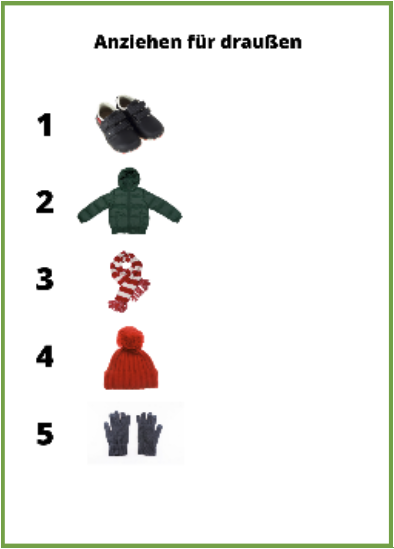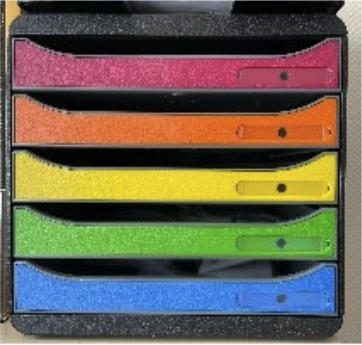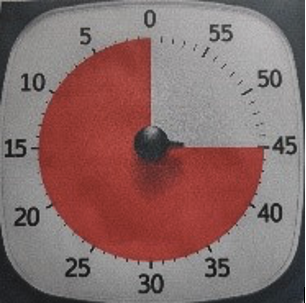Proposals for parents on how to deal with the diagnosis of Autism Spectrum Disorder (ASD)
Take time, accept diagnosis
The diagnosis of an autism spectrum disorder can initially feel like a major break in the parents’ lives. However, some parents also find the diagnosis a relief, as it brings clarity and enables targeted planning of suitable therapy and support services.
Take the time to approach the topic of ASD, exchange information with other affected persons, and get in touch with experts to discuss further procedures. You can find helpful contact points and information here.
Take care of yourself, as well. Feelings such as uncertainty, being overwhelmed and sadness are part of the normal process of coping. Allow these emotions and take the time you need to accept the diagnosis. Also take advantage of professional psychological support services if needed.
Children are often very sensitive. Be aware that your child can also feel and perceive your emotions. Right now, he or she is especially dependent on your love, attention and support.
 Dealing with the topic of autism spectrum disorders
Dealing with the topic of autism spectrum disorders
 Exchange with experts and other affected persons/families
Exchange with experts and other affected persons/families
 Allow feelings, self-care
Allow feelings, self-care
 Give your child the love, attention, and support he or she needs right now
Give your child the love, attention, and support he or she needs right now
 Learning to understand the child
Learning to understand the child
A diagnosis allows you to better understand your own child and better classify his or her behavior. Dealing with autism spectrum disorders helps you understand how the development of autistic children differs from the development of neurotypical children and how these differences can affect the child’s behavior.
 Transform and adjust the environment
Transform and adjust the environment
If you take a closer look at your child and his or her individual, specific behaviors, you will learn to understand in which situations your child feels comfortable and in which situations he or she is overextended.
Due to the special perception of autistic children, irritations or a sensory overload can quickly occur. Support your child by structuring his or her living environment in such a way that it offers fixed points of orientation and structure and avoids overstraining stimuli.




 Educate and involve the social environment
Educate and involve the social environment
Consider to what extent you would like to inform your social environment about the diagnosis and the individual effects. The better your environment is informed, the better misunderstandings and prejudices can be avoided.
Furthermore, it enables you to better communicate your support needs.
Include siblings as well. Explain what ASD is and what differences in cognition and behavior are associated with it. See the following link for more information on educating siblings: https://www.autismus.de/fileadmin/WAS_IST_AUTISMUS/Themenspezifische_Flyer/Information_fuer_Geschwister.pdf
In addition, educators and teachers should be informed about the diagnosis at an early stage in order to be able to support the child in a targeted manner. In many federal states, there are special counseling services for teachers, e.g., the autism competence centers in Bavaria and the autism expert counseling in North Rhine-Westphalia. Here schools get important information. Classmates should also be informed about the disorder and the special features associated with it in order to enable the child’s successful participation in class as well as successful interaction among the children. In the brochure of the Julius-Maximilians-University of Würzburg you will find further information and materials for the education/handling of ASD in the kindergarten/school context:
In this brochure you will find exemplary information and materials especially for teachers: https://www.uni-wuerzburg.de/fileadmin/06000060/03_Lehrerbildung_an_der_PSE/Inkl_SiKri/Broschuere_Autismus_WS_15-16.pdf
 Search for suitable therapy options
Search for suitable therapy options
Find out what therapy options are available to help children with ASD to develop. You can find an overview of specific and non-specific therapies that will help your child improve social and communication skills and gain more independence (here). Each child is individual, so it makes sense to choose a form of therapy that fits your child’s needs. However, make sure that the effectiveness of the therapy approach is scientifically proven. Therefore, seek contact with counseling centers and professionals to make the right choice. You can find helpful contact points here.

 Apply for support offers
Apply for support offers
If an autism spectrum disorder has been diagnosed according to the criteria of the ICD-10 (more), affected persons or their relatives have the possibility to apply for various services, such as:
- Degree of disability (GdB) Severe disability certificate
- Nursing grade
- Relief offers in everyday life
- School assistance
You can find more information about social-legal support options here.